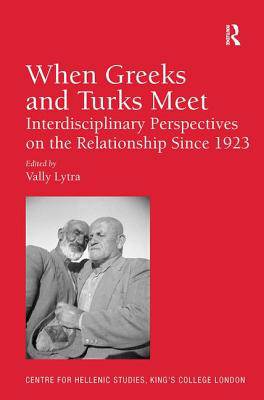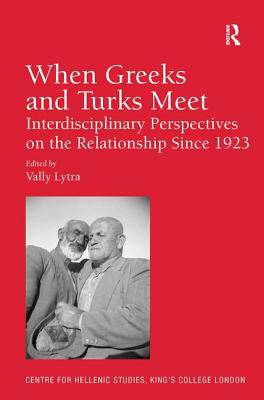
- Afhalen na 1 uur in een winkel met voorraad
- Gratis thuislevering in België vanaf € 30
- Ruim aanbod met 7 miljoen producten
- Afhalen na 1 uur in een winkel met voorraad
- Gratis thuislevering in België vanaf € 30
- Ruim aanbod met 7 miljoen producten
Zoeken
When Greeks and Turks Meet
Interdisciplinary Perspectives on the Relationship Since 1923. Edited by Vally Lytra
€ 274,95
+ 549 punten
Omschrijving
The relationship between the history, culture and peoples of Greece, Turkey and Cyprus is often reduced to an equation which defines one side in opposition to the other.The reality is much more complex and while there have been and remain significant divisions there are many, and arguably more, areas of overlap, commonality and common interest.This book addresses a gap in the scholarly literature by bringing together specialists from different disciplinary traditions - history, sociology, anthropology, linguistics, literature, ethnomusicology and international relations, so as to examine the relationship between Greeks and Turks, as well as between Greek Cypriots and Turkish Cypriots, since the founding of the Republic of Turkey in 1923. When Greeks and Turks Meet aims to contribute to current critical and comparative approaches to the study of this complex relationship in order to question essentialist representations, stereotypes and dominant myths and understand the context and ideology of events, processes and experience. Starting from this interdisciplinary perspective and taking both diachronic and synchronic approaches, the book offers a fresh coverage of key themes including memory, history and loss; the politics of identity, language and culture; discourses of inclusion and exclusion. Contributors focus on the geographical areas of Greece, Turkey and Cyprus and on the modern historical period (since 1923) up to the present day, offering in some cases an informed perspective that looks towards the future. When Greeks and Turks Meet will be essential reading for students and researchers working on the cross-roads of Greece, Turkey and Cyprus, on South-East Europe and the Middle East more generally. It will also be a valuable resource for students and researchers in inter-cultural communication, cultural and media studies, language and education, international relations and politics, refugee and migration studies, conflict and post-conflict studies.
Specificaties
Betrokkenen
- Uitgeverij:
Inhoud
- Aantal bladzijden:
- 342
- Taal:
- Engels
- Reeks:
- Reeksnummer:
- nr. 15
Eigenschappen
- Productcode (EAN):
- 9781409446019
- Verschijningsdatum:
- 28/05/2014
- Uitvoering:
- Hardcover
- Formaat:
- Genaaid
- Afmetingen:
- 156 mm x 234 mm
- Gewicht:
- 657 g

Alleen bij Standaard Boekhandel
+ 549 punten op je klantenkaart van Standaard Boekhandel
Beoordelingen
We publiceren alleen reviews die voldoen aan de voorwaarden voor reviews. Bekijk onze voorwaarden voor reviews.










